Why it's so hard to change rules for single family zones in Washington
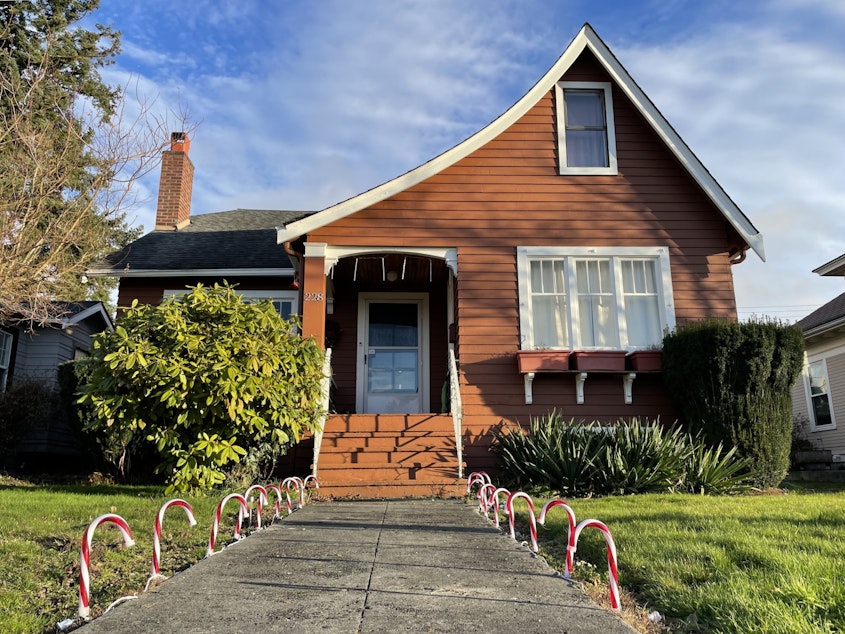
Washington state's lawmakers are debating a way to create more affordable housing.
They'd go over the heads of local mayors and city councilmembers, and strip some protections from single family zones statewide.
That's because making those changes on the local level carries great political risk.
The city of Edmonds offers an example.
On the streets of Edmonds, there’s broad agreement that the cost of homes is rising dramatically. Christian Aquino works at the Edmonds Theater and lives nearby.
“I would say it’s very expensive. And for someone like me, who earns less money than most people, I couldn’t afford it anymore,” Aquino said.
Aquino added that his family helps him afford a place to live.

Some people in Edmonds believe that single family zones should be opened up to denser development. One of those people is Trista Williams, who was enjoying a drink with her partner at a sidewalk table outside a café.
“I mean, I think in order to sort of spread out the population and bring housing costs down, yeah, it’s a good idea,” she said.
But just as common is the opposite view. Kathy Jones lives in a condo, but she walks a lot in single family zones. She doesn’t want them to change.
"Yeah, sorry – I’m gonna be selfish," she said. "Part of the reason I moved here was because of the way it is now. And I think that would dramatically change a lot of Edmonds if that started happening. "

Does she consider the affordability of Edmonds – when making that calculation about whether it should be preserved the way it is?
"Again – I feel it should be, preserved the way it is," she said. "And I know it’s expensive. And I waited a long time in my life to get to somewhere like this, as a goal. And I think it would change it, again, dramatically, for those of us who came here for that reason."
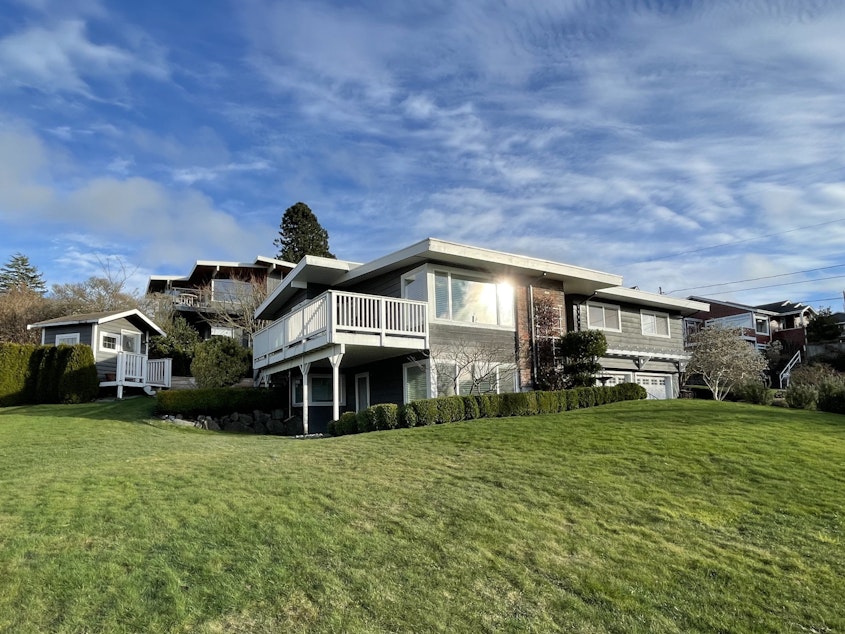
Missing middle housing bill
This conversation in Edmonds mirrors the wider conversation happening across Washington state, as lawmakers decide whether to support the so-called “missing middle housing bill.”
The bill’s intent is to bring down the cost of housing by allowing duplexes, triplexes and four-plexes on properties currently reserved for single family homes. These are traditionally less expensive forms of housing, because they split the high cost of land among multiple families. There's no guarantee that housing built under these rules will be affordable, but advocates say denser housing types like these are inherently cheaper.
Related: This realtor wants to find you a house in Washington. The odds are stacked against her.
Lawmakers are exploring these changes in Olympia because in cities across the state, changing single family zones carries significant political risk.
Back in Edmonds, the city council used to be for denser housing, but then came last year’s election.
Sponsored
Luke Distelhorst was an incumbent city council member. He wanted to open up single family zones to development.
“There’s really no other way to get out of the pattern that we’re in," he said. "And I have pretty strong values about that, and there’s definitely maybe a political cost to it. I know in some of the other races, other candidates also sent out mailers that said ‘I will guarantee protection of single family zoning.’”
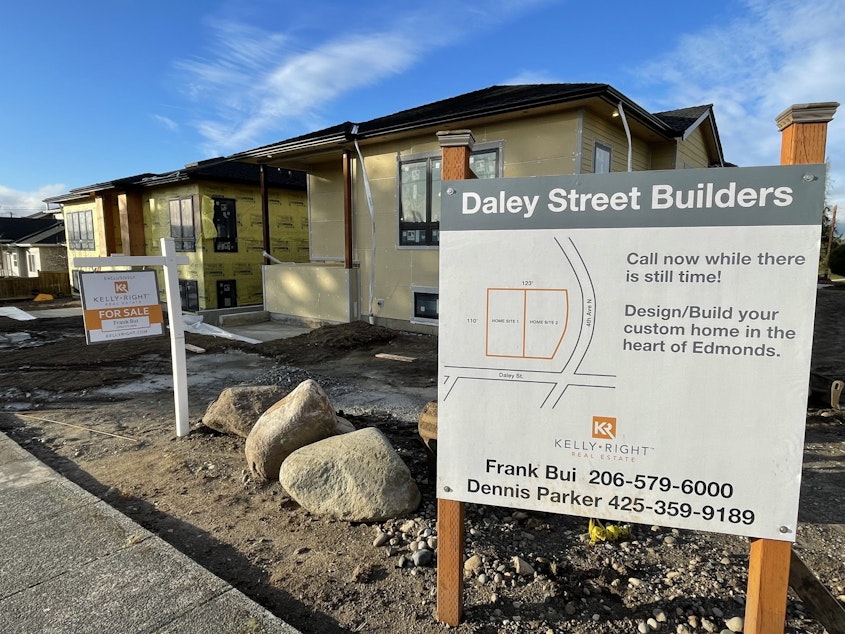
Distelhorst lost his election. The candidate who won the position was Will Chen.
Chen said when he was doorbelling thousands of homes, he heard strong interest in preserving single family homes. And in his job as certified public accountant, he said he hears from clients about their struggles to attain a home of their own.
Sponsored
“I think it’s very fundamental of people being able to accumulate wealth. For myself, for example, I came to this country as an immigrant in my 20s. And one of my American dreams is to have a home.”
Chen achieved that dream.
Chen is not against denser forms of housing, but he has learned to talk about growth without threatening single family homes.
“I think Edmonds is a very special community, where we have opportunities for maintaining single family zones – at the same time we have areas where it’s suitable for higher density,” such as along Highway 99.
Chen is not alone in this view. He’s like many mayors and city council members across the state who’ve come out against the bill, who want to retain local control over planning decisions.
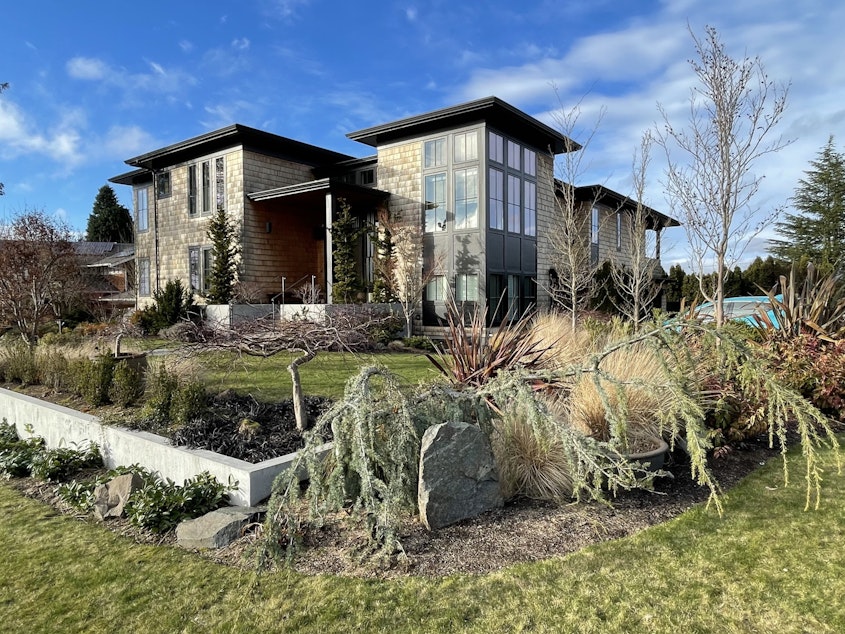
“There is a price to be paid for supporting the state in taking this action," explained Chris Collier, program manager for the Alliance for Housing Affordability.
"And you watched it happen in Mukilteo, Edmonds, Lynnwood, and a few other cities ... in Snohomish County last November.”
Collier supports the state bill, and said most local officials tell him privately that they wish it would pass. But he said these same leaders tell him that they can’t support the state bill publicly.
“They have observed the punishment that is laid upon local elected leaders that dare to suggest that the city should not be in final and total control over land use decisions within the city limits," he said. "On the contrary, elected leaders that get out in front of this at the Legislature and speak in opposition pay no such price. In fact, they’re given kudos by the community that’s fearful of change.”
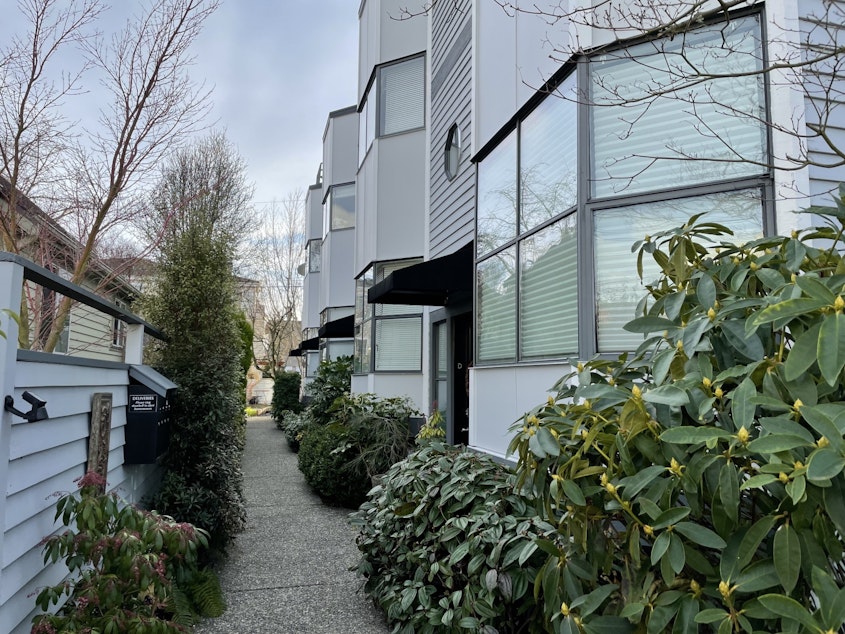
At a press conference Thursday, Governor Jay Inslee acknowledged the potentially career-ending position local leaders are in.
“Well, I get that. I’m an elected official – I know that – and what I do is encourage them just to blame it on me then," he said. "I’m taking some heat off the local officials.”
Related: 'Forbidden houses of Bothell' show how multifamily housing fits into single-family zones
Inslee asked people to think of this bill as part of the response to rising homelessness, because there’s much broader support for that.
"Washingtonians really want a solution to this problem," he said. "But we know the only way to do that is to increase density, and that is a little more controversial. So I think the state needs to step up and take some leadership on this."
The governor shares the belief that a silent majority of local leaders will lend their support to the bill behind closed doors.
On Monday, we’ll see if that secret support is enough to help the bill get out of committee. If it isn’t enough, then the bill dies, leaving it up to local governments to decide how to address the statewide housing shortage.


